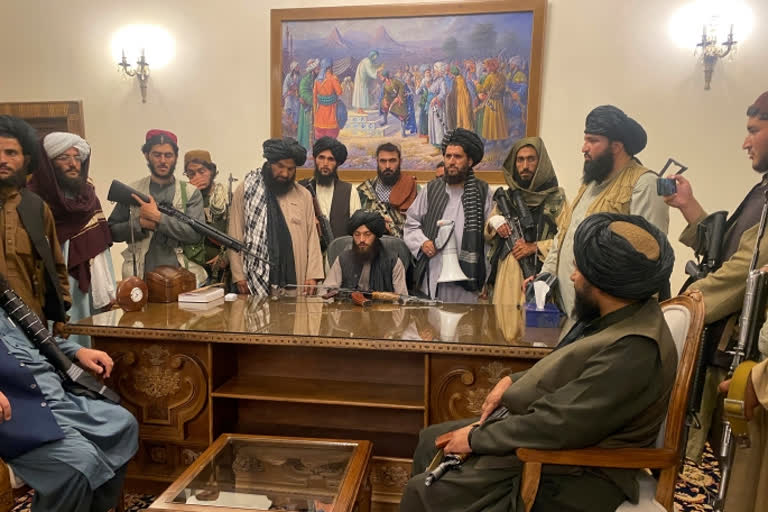Hyderabad: Cracks in the new dispensation in Afghanistan appeared more perceptible than expected. Within weeks of assuming the power, the friction between pragmatists and ideologues in the Taliban leadership has intensified. On the one hand, the hardliners group backed and nurtured by Pakistan's ISI (now even China has become a substantial part to back the Taliban) are little prepared to amend themselves in the changing political scenario; then there are the pragmatists who want to eschew the brutal way of governing and accommodate (read inclusiveness) some sections of the society in the day-to-day governance.
Rumours quickly began circulating about a recent violent confrontation between the two camps at the presidential palace, including claims that the leader of the pragmatic faction, Abdul Ghani Baradar, was killed.
The rumours reached such intensity that an audio recording and handwritten statement, both purportedly by Baradar himself, denied that he had been killed. Then on Wednesday, Baradar appeared in an interview with the country’s national TV. “I was travelling from Kabul so had no access to media in order to reject this news,” Baradar said of the rumour.
Baradar has been instrumental in serving as the key negotiator between the Taliban and the United States that eventually paved the way for the US troop withdrawal from Afghanistan, and taking sheer advantage of it the Taliban overran the capital of Kabul. In the initial days of the Taliban takeover, Baradar was projected as the head of an inclusive government in Afghanistan, but Pakistan and no less China were against him.
Further, in a sign that the hard-liners had prevailed the white Taliban flag was raised over the presidential palace, replacing the Afghan national flag.
